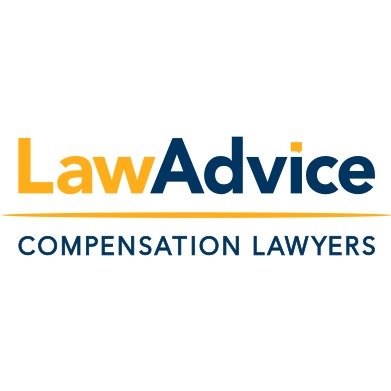Best Medical Malpractice Lawyers in Hornsby
Share your needs with us, get contacted by law firms.
Free. Takes 2 min.
List of the best lawyers in Hornsby, Australia
About Medical Malpractice Law in Hornsby, Australia
Medical malpractice, also known as medical negligence, is a legal term that refers to situations where a healthcare professional or provider has failed in their duty of care towards a patient. This could happen when their standard of care falls below that which is expected in their field or due to negligence. In Hornsby, Australia, like other parts of the country, medical malpractice law exists to ensure victims of such negligence can seek compensation for the harm caused to them.
Why You May Need a Lawyer
If you believe that you or your loved one has suffered due to a healthcare professional's negligent conduct, you may need a lawyer. Typical situations may include misdiagnoses, errors in treatment or medication, surgical mistakes, or a failure to inform patients of potential risks. Engaging an experienced medical malpractice lawyer can help you navigate the complex legal processes involved in establishing negligence and getting compensated for your suffering.
Local Laws Overview
The laws governing medical malpractice in Hornsby, Australia, are largely determined by the state laws of New South Wales (NSW). To successfully claim compensation, you must prove that the healthcare professional had a duty of care and breached it with negligence, causing harm. The Civil Liability Act 2002 (NSW) sets standards for proving professional negligence, including a reasonable foreseeability test and the concept of proportionate liability. The Limitation Act 1969 (NSW) limits the timeframe within which a claim can be brought, usually within three years of the date when the injury was discovered.
Frequently Asked Questions
What types of damages can I claim in a medical malpractice suit?
Victims of medical malpractice may claim different types of damages, including medical expenses, loss of earnings, pain and suffering, and sometimes punitive damages if the conduct was significantly egregious.
Can I sue a hospital for medical malpractice?
Yes, hospitals can be held responsible for the actions of their employees, including doctors, nurses, and other medical professionals who may have exercised medical negligence.
What is the legal process for a medical malpractice claim?
Firstly, patients or their lawyer must provide a certificate of merit to validate the claim. Then a formal claim is lodged, providing all relevant medical details and an offer of settlement. The parties may then negotiate a settlement or proceed to court if agreement isn't reached.
How long do medical malpractice cases typically take?
These cases can be complex and may take several months or even years to be resolved. The duration depends on factors such as the nature of injury, the evidence to be examined, and court schedules.
Does the patient always need an expert witness in a medical malpractice case?
Yes, a patient will typically need an expert medical witness to provide professional opinion on the supposed standard of care and whether the defendant breached it.
Additional Resources
For further guidance and information, individuals can turn to organisations like the New South Wales Law Society, the Health Care Complaints Commission (HCCC), and the Australian Health Practitioner Regulation Agency(AHPRA).
Next Steps
If you believe you have been a victim of medical malpractice, gather all medical records and details of events. Consult with a lawyer specialized in medical malpractice to evaluate your case. Remember to act within time limits set out by the Limitation Act 1969 (NSW).
Lawzana helps you find the best lawyers and law firms in Hornsby through a curated and pre-screened list of qualified legal professionals. Our platform offers rankings and detailed profiles of attorneys and law firms, allowing you to compare based on practice areas, including Medical Malpractice, experience, and client feedback.
Each profile includes a description of the firm's areas of practice, client reviews, team members and partners, year of establishment, spoken languages, office locations, contact information, social media presence, and any published articles or resources. Most firms on our platform speak English and are experienced in both local and international legal matters.
Get a quote from top-rated law firms in Hornsby, Australia — quickly, securely, and without unnecessary hassle.
Disclaimer:
The information provided on this page is for general informational purposes only and does not constitute legal advice. While we strive to ensure the accuracy and relevance of the content, legal information may change over time, and interpretations of the law can vary. You should always consult with a qualified legal professional for advice specific to your situation.
We disclaim all liability for actions taken or not taken based on the content of this page. If you believe any information is incorrect or outdated, please contact us, and we will review and update it where appropriate.








